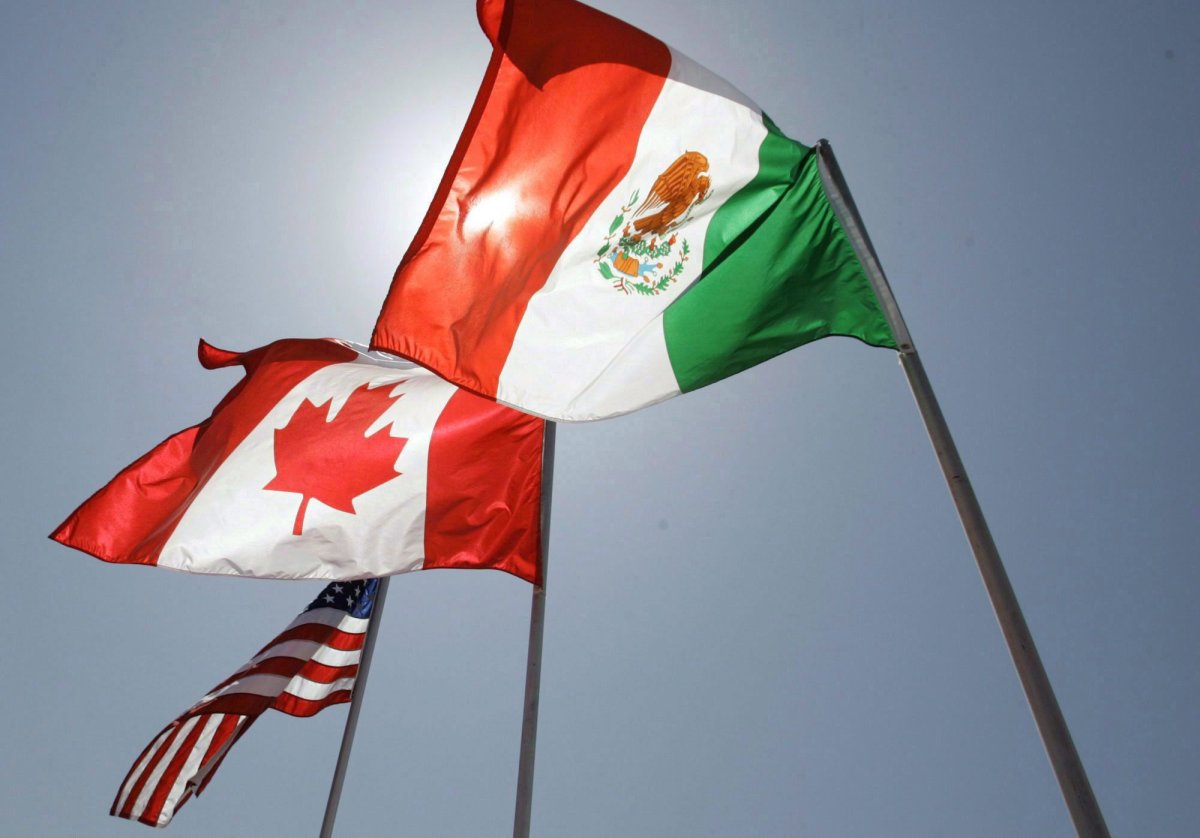The Trump administration doesn’t have the legal authority to sideswipe Canada and sign a bilateral trade deal with Mexico, Quebec’s chief NAFTA negotiator said Monday.

Raymond Bachand, an ex-Quebec finance minister, said “there is no worry whatsoever” the current one-on-one talks between the United States and Mexico will end in a trade deal signed without Canada.
Bilateral NAFTA negotiations between the two countries have been building momentum in recent weeks, while Canada has yet to return to the table this summer.
U.S. President Donald Trump recently stated a deal with Mexico “is coming along nicely” and “Canada must wait.”
WATCH: Canada, Mexico agree that NAFTA must be a ‘trilateral agreement’

The president has also said he would be interested in signing separate deals with both countries.
Even if Trump really wanted that, Bachand said, he couldn’t get it.
“If the U.S. wanted a bilateral deal — and they don’t, they’ve repeated often they want a trilateral deal — they don’t have legal authority.”
“They have the authority from Congress to negotiate a trilateral NAFTA deal in a fast-track way — meaning Congress votes yes or no on the final deal once it’s been reached. They don’t have that (fast-track) authority for a bilateral deal.”
READ MORE: U.S., Mexico continue NAFTA talks, unclear when Canada will again be included
Bachand made the comments in Stowe, Vt., during the two-day annual conference between governors of New England states and the premiers of Quebec and the eastern Canadian provinces.
Not a single U.S. governor or senator has asked to pull their country out of NAFTA, Bachand said, which is Canada’s true trump card in the negotiations, he added.
“So all the so-called modernization attempts the president wants with NAFTA, there is a kind of red line,” Bachand said. “NAFTA will continue because the power in the U.S. Senate is very strong in commercial decisions, and governors also have a big influence.”
On Sunday, Vermont Gov. Phil Scott and Quebec Premier Philippe Couillard signed a joint declaration on economic co-operation, despite the trade tensions between the two countries.
READ MORE: Chrystia Freeland ‘very keen’ to wrap up NAFTA after sitting out U.S.-Mexico talks
Scott said the agreement “acknowledges our intertwined economies and solidifies our commitment to building cross-border trade.”
Couillard said Monday one of the ways a new NAFTA deal will be reached is by convincing Americans who live outside the states that border Canada of how critical trade is for the economies of both countries.
Quebec’s premier said he had breakfast with the eastern premiers and New England governors Monday and they “almost exclusively” talked about NAFTA.
“The border states understand well the level of integration of our economies,” he said. “It’s the rest of the country and the White House we have to work on.”
- Canadian man dies during Texas Ironman event. His widow wants answers as to why
- On the ‘frontline’: Toronto-area residents hiring security firms to fight auto theft
- Honda’s $15B Ontario EV plant marks ‘historic day,’ Trudeau says
- Canadians more likely to eat food past best-before date. What are the risks?



Comments